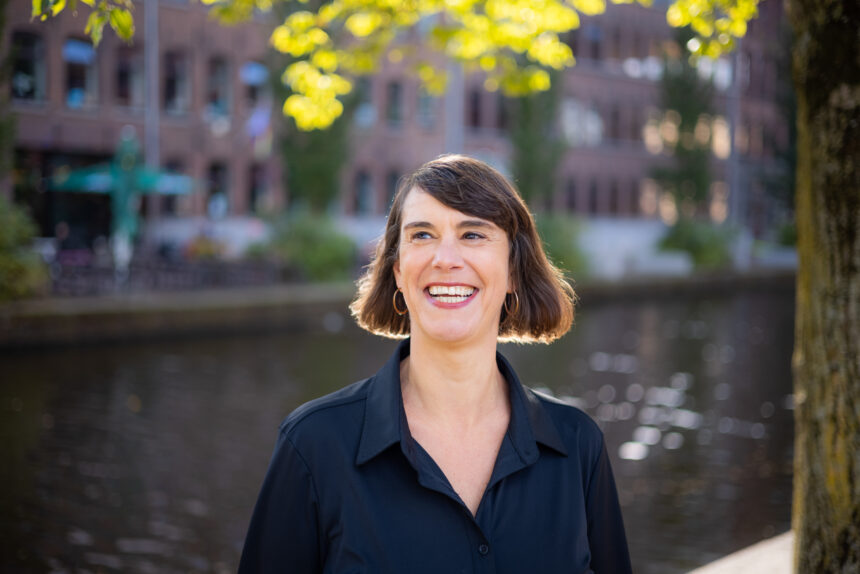The Faculty of Humanities has a new dean: Marieke de Goede. She will be Fred Weerman’s successor, who holds a controversial position within the UvA after students and teachers demanded his departure earlier this year. We spoke with the dean-to-be about her decision to apply for this position and her upcoming plans. After five years of Weerman, what will the faculty look like with a woman steering the ship?
Applying for this position is an ‘exciting and unexpected choice,’ but as her research project of five years is coming to an end, de Goede feels it is time to ‘take a step into the background.’ Rather than being at the forefront of research and education, ‘now is a good moment to dedicate myself to the facilitation of research, teaching and learning for others,’ she tells us. Female and diverse leadership is important to her, and part of her motivation for the new role. Why? ‘We know that diversity in leadership teams makes for better decisions and diversity is important for good science. Women are not necessarily better leaders, but they often have a natural affinity with issues like social safety or diversity,’ because they are ‘wise through experience,’ she answers. De Goede shares that ‘some things we experienced as young teachers, or as PhD candidates, we now wouldn’t tolerate anymore, which is a good thing.’ These experiences play a role in her decision to apply for the position of dean: ‘I want to do this certainly because of things I experienced, I want to contribute to change.’ Nonetheless, de Goede firmly says that the UvA ‘is doing well already. And has made a lot of progress, also though the work of the Taskforce Social Safety.’
As de Goede starts in March, her agenda is not set yet: ‘I think it is important to listen first,’ she emphasises, ‘I really want to learn what is going on in the faculty and what people need.’ That being said, it is clear that social safety is high on her list of priorities: ‘it is a pressing issue in the entire university and also beyond the UvA, which it also needs to be.’ She also expressed concern about the wellbeing of students after covid: ‘for some students there is no problem (…) but as a teacher I also have the idea that people disappear of my radar.’ A way to combat this is involvement within the university, so that the students who are struggling do not disappear, explains the dean-to-be. When asked about the controversial topic of internationalisation, de Goede is hesitant: ‘I find it difficult. We are an international university, almost all departments profit from internationalisation and research networks are naturally international (…) I really think it adds value, an international classroom.’ She goes on to say that ‘for some bachelors [internationalisation] is a lifeline and they really need it, but any decisions always has to be on substantive and didactic grounds.’ In the entire interview her emphasis on substantive arguments and purpose is noteworthy, which shows her nuanced (or careful) view.
With a background in mainly social sciences -she has been a teacher within the political science department for many years and has a degree in International Relations- the choice to apply for the dean of the Faculty of Humanities might be unexpected. ‘My own work has always been at the intersection of social sciences and humanities,’ she explains. ‘I use methodological and philosophical approaches from the humanities in my research, and have always continued to collaborate with colleagues for example in the Global Digital Cultures research group.’ Between 2003 and 2010, de Goede taught at the Faculty of Humanities in the department of European Studies. ‘I really see it as a natural return to the faculty, where I first started working,’ she says. A satisfying closed cycle? At least for the next five years: ‘I don’t know what will happen afterwards!’
Photo credits: Kirsten van Santen

